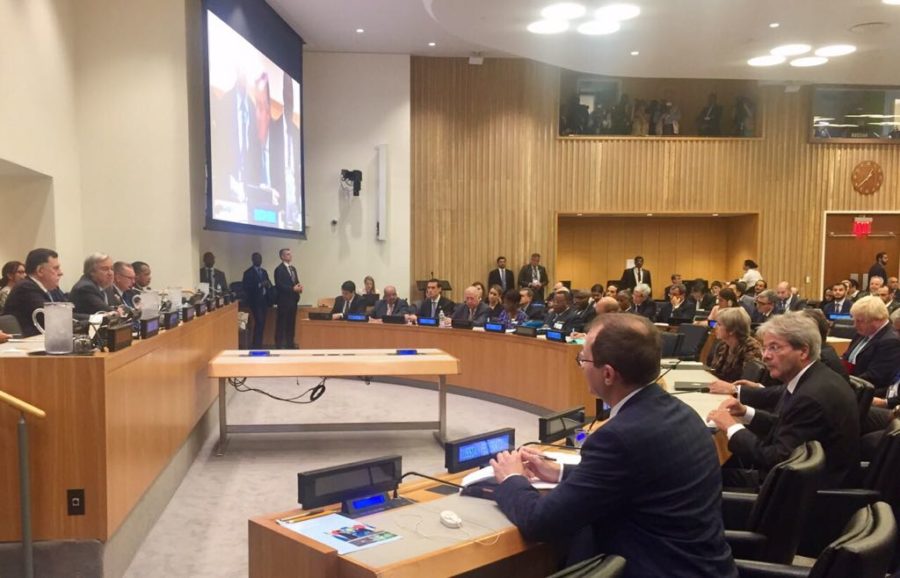8th October 2017 Tripoli, Libya
Unity of Purpose
Last month the world’s leaders gathered in New York. The agenda included many pressing issues: North Korea, Burma, Modern Slavery. It also included a high-level event on Libya.
The United Nations Secretary-General Antonio Guterres opened the meeting by underlining its historic importance. There was a window of opportunity to resolve the crisis in Libya by reinvigorating an inclusive political process. There could be no military solution.

His special representative Ghassan Salame then set out an Action Plan, underlining that it was a Libyan plan based on his extensive discussions in Libya. The aim is to give the people of Libya a voice in their country’s future leading to free and fair elections. He called on all Libyans to come together in a spirit of compromise and engage constructively in this work.
Speeches by the world’s leaders, including British Prime Minister May, French President Macron, Italian Prime Minister Gentiloni and Egyptian President Sisi strongly supported this Action Plan. The window of opportunity must be seized to inject fresh momentum and bring peace and security to the Libyan people.
Mrs May called on all national, regional and international stakeholders to unite behind the UN’s efforts. She urged the international community to unite in support of a single UN-led process. She announced a further £40m to support political transition, good governance and economic reform in support of Libya’s institutions. She also announced £5m for essential healthcare needs and to support vulnerable migrants.
The UN wasted no time in turning this plan into reality. Representatives of the House of Representatives and Higher State Council met in Tunis last week to start discussions on a limited set of amendments to the Libya Political Agreement. Good progress was made and the teams are expected to return to conclude their work next week.
Why is this new effort so important?
Six years after the revolution, the hopes and aspirations of the Libyan people remain unfulfilled. The security situation Is fragile, as shown by recent clashes in Tripoli and fighting in Sabratha. The daily lives of people are disrupted by queues outside banks, lengthy power cuts, rubbish in the streets and poor public services. The Libyan people deserve better.
The economy is especially delicate. Oil production has risen but is constantly disrupted by groups who shut down production with unreasonable and unrealistic demands. Lower production and lower prices mean lower revenue.
The expenses of the government are much higher than the income, meaning that Libya’s reserves are being depleted. We all know from our household expenses that if we spend more than we earn, we go bankrupt. That is what is happening to Libya.
The UN-led process offers the best chance for Libya to extract itself from this mess. The event in New York re-established the unity of purpose of the international community behind the UN.
Success depends on the Libyans. It depends on the political leadership and their willingness to compromise. It depends on the voice of the people being heard and respected.
Unity of purpose means that the interests of all the Libyan people, irrespective of whether they are in the West, East or South, irrespective of their tribal background or links with the past, can be heard.
Unity of purpose means reconciliation between all Libyans and a focus on the interests of the nation as whole rather than narrow, vested interests.
Unity of purpose means a commitment to democracy and the peaceful resolution of disputes through dialogue and compromise.
We are ready to play our role in support. But ultimately, it is up to Libyans to make the tough choices.
Both HoR and the state council are part of the problem they cannot be part of the solution i think for things to move forward a new body must be formed the idea of Mr Salama to have a Luiajergha like congress consisting of all players be it tribal political parties municipal old regime diehards would be a last idea to have Libyans decide their future, afinal solution might be to put the country under a UN trusteeship having international security force in place establish security and have a consensus over a constitution then run and monitor elections presidential and legislative.
كلام صحيح وان شاء الله يسير منها